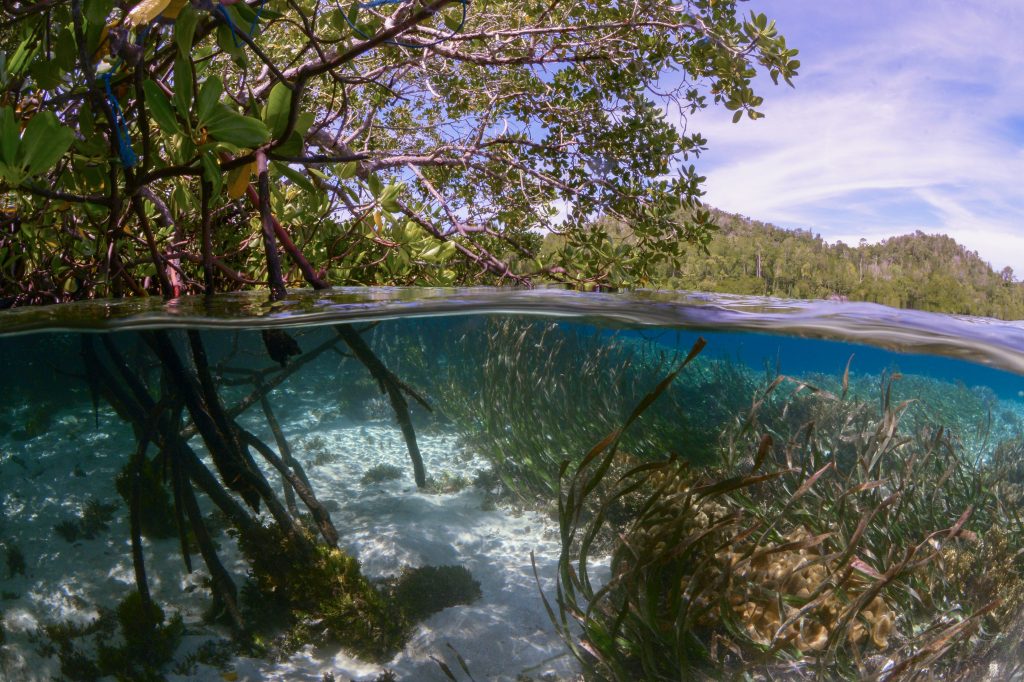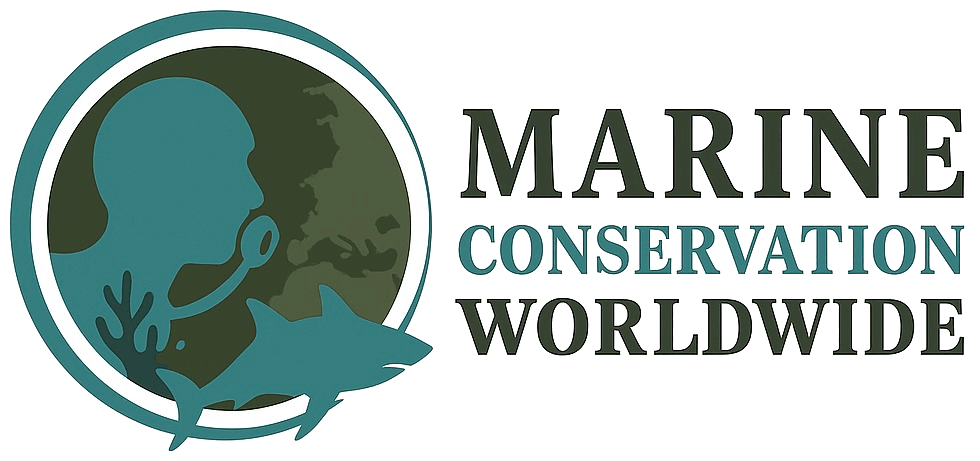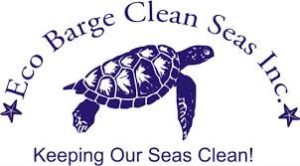SEAGRASS: The Hidden Meadows of the Ocean
INTRODUCTION
Often overlooked compared to coral reefs or mangroves, seagrass meadows are among the most important ecosystems in the ocean. Found in shallow coastal waters, these underwater meadows provide shelter and food for countless marine species, from tiny invertebrates to sea turtles and dugongs.
Why Seagrass Matters
Biodiversity hotspots: Seagrass meadows are nurseries for young fish, crabs, and shrimp.
Carbon storage: They are among the most efficient natural carbon sinks, storing up to 35 times more carbon than tropical rainforests per hectare.
Coastal protection: Seagrass stabilizes sediments and reduces erosion, shielding coastlines from storms.
Food source: Many species, including green turtles and dugongs, rely directly on seagrass for survival.
Water quality: By trapping particles, seagrass keeps the water clear and healthy for other ecosystems like coral reefs.
Threats to Seagrass
Despite their importance, seagrass meadows are in decline worldwide:
Coastal development: Construction and dredging damage fragile habitats.
Pollution: Nutrient runoff from agriculture leads to algal blooms that smother seagrass.
Climate change: Rising sea temperatures and stronger storms weaken and destroy meadows.
Physical damage: Boat anchors and trawling directly uproot large areas of seagrass.
What Can Be Done?
Habitat protection: Establishing marine protected areas ensures seagrass meadows remain intact.
Restoration projects: Replanting seagrass has proven successful in many regions.
Reducing runoff: Sustainable farming practices and wastewater management reduce nutrient overload.
Community involvement: Local conservation projects raise awareness and protect coastlines together with residents.
Call to Action
Seagrass meadows may be hidden beneath the waves, but their importance cannot be ignored. They are climate allies, nurseries for marine life, and protectors of coasts. By safeguarding seagrass, we protect both the ocean and ourselves.
Projects

Featured Labels
You probably will notice that some Marine Conservation profiles are decorated with one or several of these beautiful labels. Here is what they stand for.

Volunteers wanted
This label is added to the profiles of the Charities that are in urgent need of some extra pairs of hands. Of course most organizations do welcome and always appreciate volunteers, but we only give this label to the ones that cannot keep their current level of operations without additional help. Some Charities with this label are looking for people to work on a punctual project or event; others desperately need longer-term volunteers, and the volunteer donations, to stay afloat.

Urgent funds needed
This label is added to the profiles of the Charities that are facing a drastic loss of revenue and/or sudden and heavy costs, following a natural disaster for example. The costs sometimes hurt the Charities so badly, their very existence is hanging in the balance. Obviously all Local Charities rely on donations, but the ones with this label need immediately available funds. It could even be a matter of life and death for a person or an animal. If you see this label, please visit the Charity's website and support them as soon as you can!
Get listed on oUr platform
Marine Conservation Worldwide: what is in it for you.
IT'S FREE
Marine Conservation Worldwide is set up with a solidarity ideal. We are not interested in financial gain. A listing with us is free of charge for all non-profit organizations, and always will be.
IT'S EASY
No muss, no fuss. We'll do the writing, the designing, the publishing, the sharing... while you focus on what you do best. Making our world a better place.
IT'S SERIOUS
Credibility is very high on our priorities list, and our platform is the real deal to us. This is why we have set strict quality standards for ourselves; we know that if givers trust us, they'll trust you.
IT'S WORLDWIDE
We work hard to reach an international audience. The whole point of our initiative is for YOUR story to transcend borders, so you can indeed be: a Marine Conservation Worldwide.
Checklist
Marine Conservation which cannot provide evidence that they fulfil all of the conditions cited below will regrettably have to be turned down for a listing on our platform. In another world, we would not leave anyone behind like this, but sadly in this world we must. We want to be unequivocally positive that we are not enabling crooks or scammers with our services. Thank you for your understanding.
We ask Marine Conservation organizations to:
be officially registered with the relevant and legally recognized institutions in the country where they operate AND/OR be officially registered with the relevant and legally recognized institutions in their country of origin AND/OR be an official subsidiary, project, or initiative of a registered company, collective, or foundation.
Organizations or individual initiatives without any official status will not be accepted.
Your organization must implement operations and projects that contribute to one or more legally recognized charitable purposes, including but not limited to:
protecting and restoring the marine and coastal environment,
preventing or relieving the suffering of marine animals,
advancing education, culture, or public welfare through marine conservation,
promoting sustainable livelihoods for coastal communities,
advocating for social justice and human rights where they connect to ocean and coastal protection.
We request that Marine Conservation organizations listed on our platform be 100% tax-exempt non-profit entities.
This means their income must be used exclusively for charitable actions and for maintaining the organization’s operations (such as rent, wages, transport, equipment, etc.).
Organizations that distribute dividends or profits to shareholders will not be accepted.
Marine Conservation Social Enterprises
Organizations we list under this pillar may operate as for-profit businesses, but they must demonstrate that they:
empower local coastal communities by creating jobs, paying fair wages, and providing free education or capacity-building related to marine protection,
reinvest at least half of their profit back into programs that improve local social or environmental well-being, especially those connected to the ocean,
offer ethical products or services that put the planet, marine life, human and animal health, and community welfare before profit.
We choose to list on our platform the very small Marine Conservation organizations that receive little to no governmental support and have a total annual budget of less than US$ 250,000.
This amount is not set in stone — we may also accept organizations with larger budgets if they are clearly facing challenges of stability and growth, and could genuinely benefit from additional support.
We define a Local Marine Conservation organization as one that is established for purposes and activities that directly, measurably, and solely benefit the marine and coastal environment of the region where the organization is located.
Our initiative is global, reaching out to an international audience.
Keep in mind that people who discover your Marine Conservation organization through our platform — and are moved by your story — may not speak your local language.
We therefore highly recommend that at least your donation page and your “about us” story on your website be available in English. If creating this is too complex, you might consider activating an automatic translation function on your website.
Please note:
Our team communicates in English, and all official documents related to your partnership with us will be in English.
It is very helpful if at least one member of your organization can communicate in English with reasonable fluency, in order to participate in our online community-building events.
We truly value speaking with you directly — and we love getting to know the people behind the conservation work!
Last but not least, we value transparency — and we expect the same from the Marine Conservation organizations we work with.
We may ask you to provide evidence of your ongoing local actions and projects, such as:
photos or videos,
testimonials from beneficiaries or community members,
local news articles,
annual or activity reports.
This helps us demonstrate to our givers and website users that your organization is accountable and that their donations are indeed used for the marine conservation cause they chose to support.
Trust is at the heart of our work, and transparency is the way we build it together.
You just won a spot on our website. Follow the link below to get started and receive your partnership application form. We can’t wait to hear all about you and the amazing things you get up to!
![]() Welcome, friend, to Marine Conservation Worldwide
Welcome, friend, to Marine Conservation Worldwide ![]()


